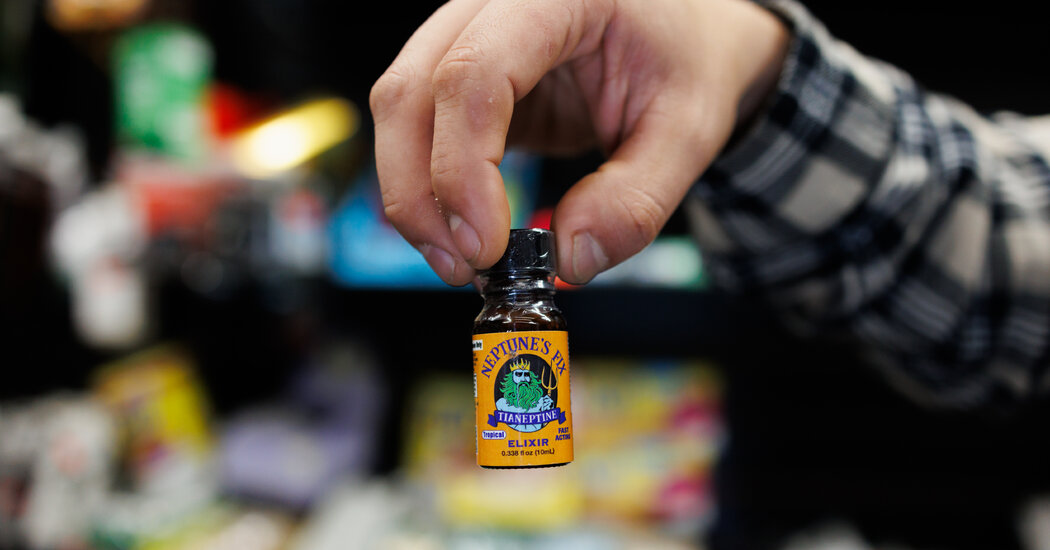Tianeptine, found at convenience stores, at smoke shops and online, can mimic an opioid. It is among a growing class of substances that are difficult to control.
…
Often sold as a dietary supplement and promoted by retailers as a mood booster and focus aid, tianeptine is among a growing, unregulated class of potentially addictive products available in gas stations, convenience stores and smoke shops and across the internet. They typically include synthetic pharmaceuticals and plant-derived substances.
Some, like kratom and phenibut, can be addictive and, in rare cases, fatal. They often originate in other countries, including Indonesia and Russia, where they are commonly used, even prescribed, for mood management. But the Food and Drug Administration has not approved them as medicines in the United States.
“Tianeptine is an emerging threat,” said Kaitlyn Brown, clinical managing director of America’s Poison Centers, which represents and collects data from 55 centers nationwide. “We have people who are able to get a substance that’s not well regulated, that has abuse potential and that, in high doses, can cause similar effects to opioids, leading to really harmful outcomes.”
…
Tianeptine is a drug developed by French researchers in the 1960s as an antidepressant. It is approved in low doses for that use in many European, Asian and Latin American countries.
But at higher doses, it also works much as an opioid does, delivering short-lived euphoria. In the United States, many people take tianeptine under the widespread, mistaken belief that it is a safe alternative to street opioids like fentanyl or heroin, or even a way to taper off using them. On social media sites like Reddit, its merits are hotly debated, with more than 5,000 people subscribing to a “Quitting Tianeptine” forum.



No regulations or testing always means higher harm potential for the end user.